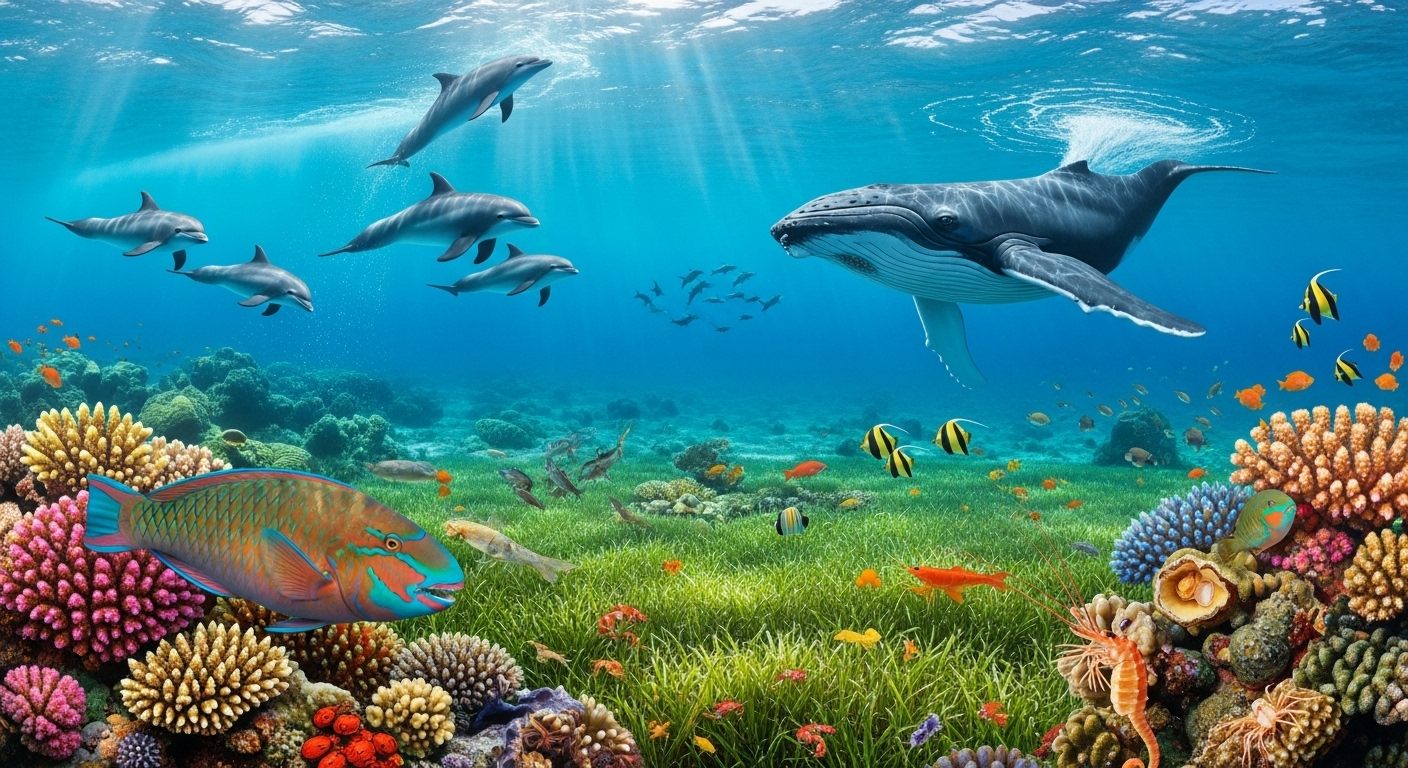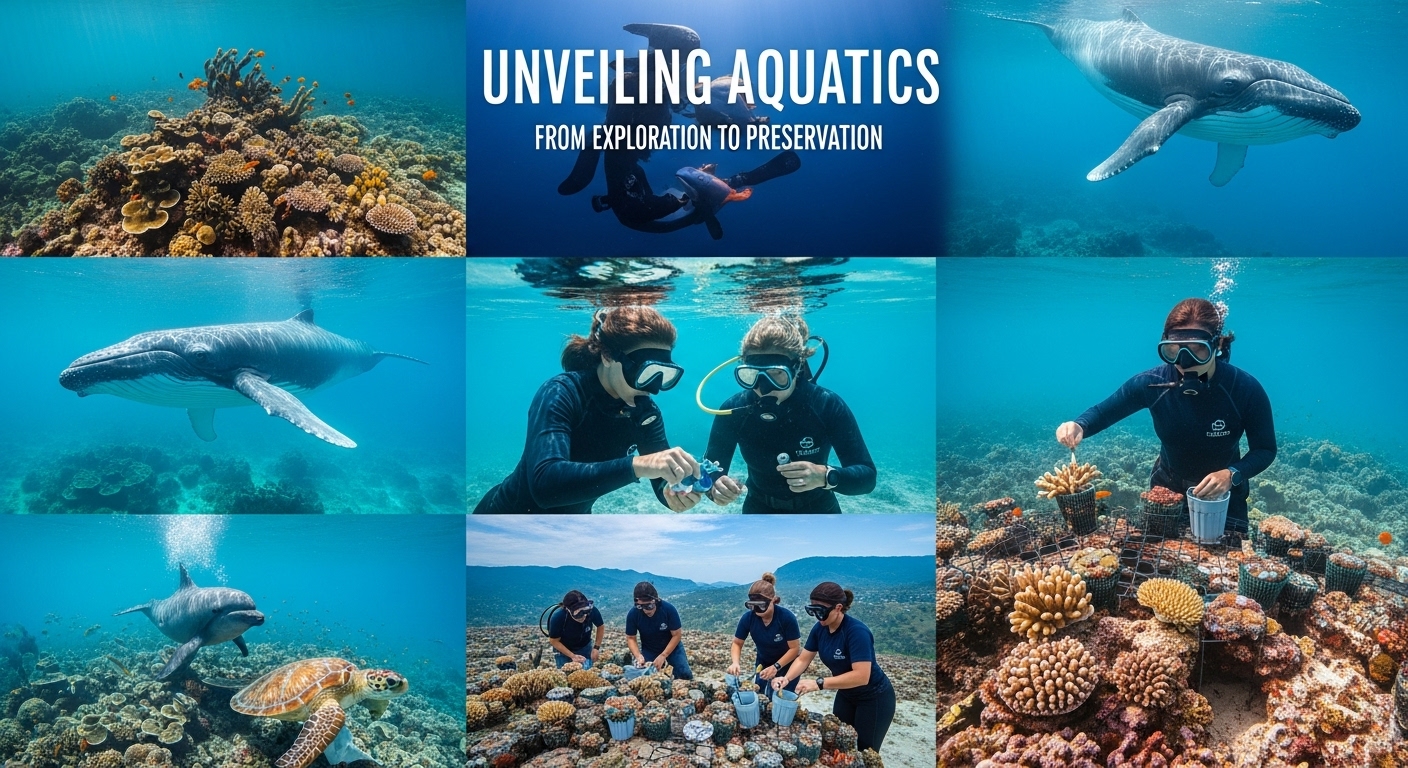Ever since I dipped my toes into aquatics, it’s been a wild, fascinating ride. You wouldn’t think something as simple as water could be so varied, would you? But trust me, there’s a lot more to aquatics than meets the eye. From swimming pool antics to the vast expanse of marine ecosystems, the realm of water is as diverse and captivating as they come. The journey into aquatics is as much about discovery as it is about understanding the intricate balance of our ecosystems. Whether you’re a swimmer, diver, or just someone who loves a good splash, there’s something for everyone in the watery world of aquatics.
Understanding Aquatics
So, what even is aquatics? Well, technically speaking, it encompasses all kinds of water sports and recreational activities. But it’s not just about sports. It’s about the whole water-based ecosystem. You can dive into the details here if you’re into the nitty-gritty. Now let’s break it down a bit.
Water Sports and Recreation
When you think aquatics, you might first imagine swimming. Makes sense, right? But there’s way more to this water world than just swimming laps at the local pool. We’re talking about everything from synchronized swimming to water polo, and don’t forget about diving. Each of these sports has its own set of skills, and mastering them can be both challenging and rewarding.
Swimming: The Classic Staple
Swimming is probably the most accessible of all aquatic activities. You don’t need fancy gear. Just a swimsuit and some water. It’s a fantastic full-body workout and something that could be your lifelong companion. Plus, it’s therapeutic. The feeling of gliding through water? Yeah, nothing quite like it.
Other Water Sports
- Synchronized Swimming: Imagine ballet in water. Graceful yet demanding.
- Diving: Precision and courage rolled into one sport. Diving off a board or even off a cliff brings a thrill like no other.
- Water Polo: Think of it as soccer but in water. Intense, strategic, and always a splashy affair.
Marine and Freshwater Ecosystems
Aquatics isn’t just about sports, though. It’s also about the vibrant ecosystems that flourish in water. From coral reefs to freshwater lakes, each environment is unique. They’re homes to countless species, many of which we’re still discovering. These ecosystems play a crucial role in our planet’s health. They regulate temperature, support biodiversity, and even affect weather patterns. Curious about these ecosystems? The Britannica offers a deeper dive into the complexities.
The Coral Reefs
Coral reefs are often dubbed the rainforests of the sea, and rightly so. Bursting with life and color, they’re among the most diverse ecosystems on Earth. They’re fragile, too. We’re talking about structures that are extremely sensitive to changes in water temperature and acidity. Conservation efforts are crucial to their survival.
Freshwater Habitats
These include lakes, rivers, and wetlands, each supporting various life forms. Wetlands, for instance, are like nature’s kidneys, filtering pollutants and sustaining biodiversity. But they’re more than just organisms—they’re essential to the communities around them.
Diving Into Aquatic Therapy
Here’s something you might not know: aquatics can be therapeutic. Water therapy, or hydrotherapy, is gaining traction for its benefits in rehabilitation and stress relief. The buoyancy of water reduces stress on joints, making it ideal for those with arthritis or injuries. Plus, the resistance it offers helps strengthen muscles without the risk of injury. It’s pretty neat how water can heal, don’t you think?
Benefits of Aquatic Therapy
| Benefit | Description |
|---|---|
| Joint Relief | Water’s buoyancy lessens stress on joints, ideal for arthritis patients. |
| Muscle Strengthening | Offers resistance, strengthening muscles with minimal injury risk. |
| Stress Relief | The calming effect of water can significantly reduce stress levels. |
Aquatics and Environmental Impact
Water is life, and maintaining the health of aquatic environments is crucial for sustaining life on Earth. Pollution, climate change, and overfishing are some challenges that threaten aquatic ecosystems. Efforts are underway globally to mitigate these impacts, but it’s a race against time. It’s not just about preserving the beauty of these environments; it’s about survival.
Speaking about survival, the world of aquatic combat sports is something to behold. A different kind of battle where agility and skill are tested under water. If that’s your jam, you might want to check out some intriguing insights here. It’s a fascinating blend of strategy and physicality that’s as compelling as the ecosystems we strive to protect.
FAQs About Aquatics
- Is swimming the best water workout? Well, it’s one of the best, for sure. But it really depends on what you enjoy. Water aerobics or even aqua yoga might be your thing too.
- Why are coral reefs important? They’re vital because they support marine life, protect coastlines, and even contribute to the economy through tourism and fisheries.
- Can aquatics help in rehabilitation? Absolutely. Water therapy is brilliant for joint relief and muscle strengthening without the risk of injury.
- What’s the best way to get into water sports? Start with what you find fun. Whether it’s swimming, diving, or water polo, just get in the water and see what clicks.
- How does pollution affect aquatic ecosystems? Pollutants can harm marine life, disrupt ecosystems, and even lead to the death of species. It’s a significant issue that requires immediate attention.
And there you have it. A glimpse into the expansive world of aquatics. There’s a lot to explore, a lot to appreciate. Dive in, see where the water takes you. It could be a pool, a lake, or the ocean. Doesn’t matter. The water waits.


